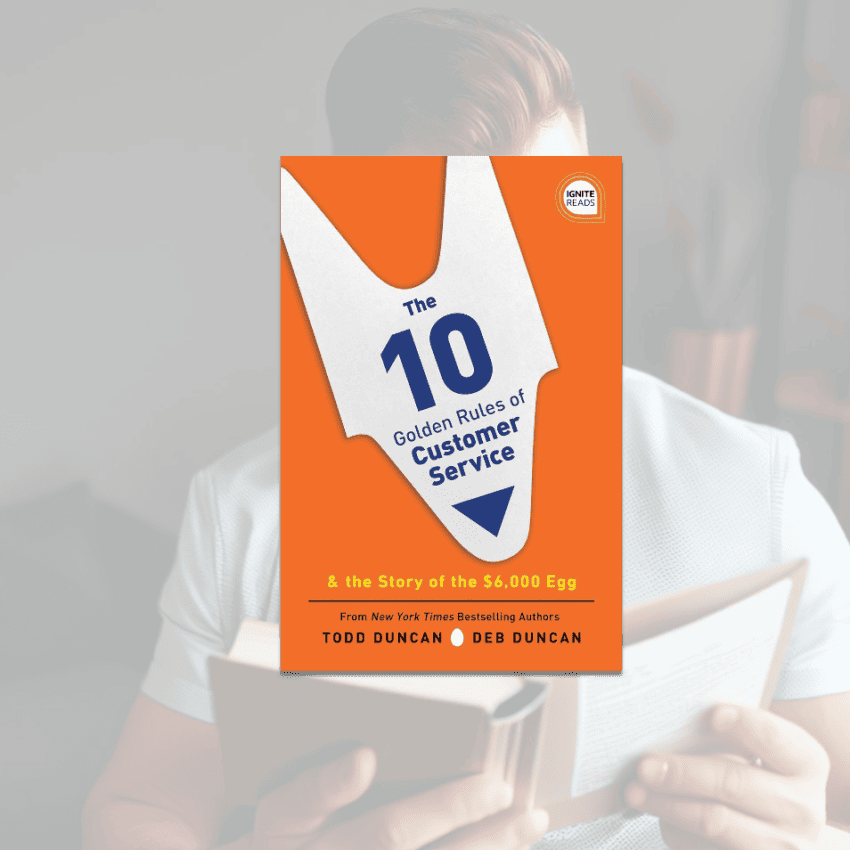Every day it seems like there are more articles about inflation, the cost of living, or interest rates. The thought of rising prices reminds me of a book I read a few years ago. It was called The 10 Golden Rules of Customer Service and the Story of the $6,000 Egg by Todd and Debb Duncan.
The story of the $6,000 egg begins with a man who goes to one of his favorite restaurants. He frequents this restaurant so much, that he estimates he spends $6,000 per year there, and he always orders the same thing – a cheeseburger topped with a fried egg. On this day, the waitress refused to give the man an egg for his cheeseburger because they were serving a special waffle, which required the staff to save the eggs for just that purpose. Even the manager refused to help this loyal – now former customer.
As a result, the staff at this restaurant let a $0.35 egg cost them $6,000 per year in lost revenue. The book warns against short-sightedness and the pitfalls of not going the extra mile for your customers.
In government, our customers are often captive, and we call them residents. For them, buying the products we offer from someone else means uprooting their entire lives and relocating their families. So what happens when our residents encounter poor customer service? Incivility.
When people can’t improve the service quality they receive from the government, they lose faith and trust in government. They start to believe the myth that the private sector does it better. They accept as truth the falsehood that government employees are somehow inferior to the employees of their favorite companies. It begins a dangerous spiral that erodes not only their trust in government but also their perceived quality of life and satisfaction in their community.
In our modern world, incivility from our public can be traumatizing for public servants. The old-school boundaries of respect and decorum have gone right out the window, and we find ourselves frequently engaging a more hostile populace. But there is an answer – and the Duncans outline it very clearly in this book.
The ten rules that he lays out sound obvious when you list them – but they are so unexpected that practicing just a few of them frequently shocks our citizenry into a new and cordial conversation.
- Be present and engaged.
- Be responsive and timely.
- Be proactive and helpful.
- Be knowledgeable and professional.
- Be positive and enthusiastic.
- Be respectful and empathetic.
- Be flexible and adaptable.
- Be consistent and reliable.
- Go the extra mile.
- Empower your employees.
As crazy as it is to think that a person would give up their favorite restaurant over a single egg, anyone who has done work at any level of customer service can think of a person who melted down over similarly minuscule things. The reality is we are all human beings, and we are all under a lot of stress right now. That egg – or that library book that can’t be found – or that missed garbage pickup – or that higher-than-average water bill – might just be the last straw.
If we and our colleagues can connect the dots and give a little grace, we may very well have a cure for rampant incivility in our cities, states, and nations. Walking from one meeting location to another, it’s common to encounter a citizen who looks a little lost in our big government buildings. Stopping to ask if we can help is a good start – but inviting them to walk with us as we move toward their destination creates the opportunity to build trust and show our humanity. Introducing them to our coworker at the window lets them know they are never alone – and it tells our coworkers that we have faith in their abilities to help this customer. And it all takes no more than a few minutes.
The amount of time and effort it takes for us to build trust – one interaction at a time – is probably comparable to the few cents it would have cost the restaurant in the book to provide one egg. But the benefits we receive from changing the story told by that one voice – by recruiting one cheerleader for our community – far exceeds the $6,000 per year that the main character spent at that restaurant. As leaders, the more we model this strategy for civility, the more it will reproduce within our organizations. The outcome of this chain reaction is a population that believes in and supports their public servants.

